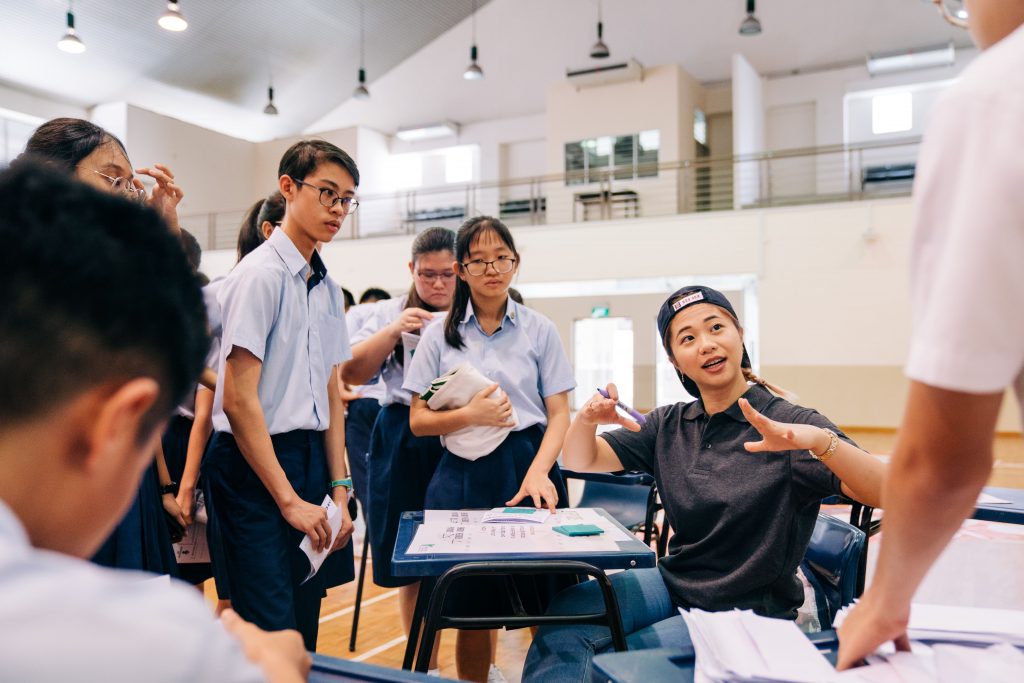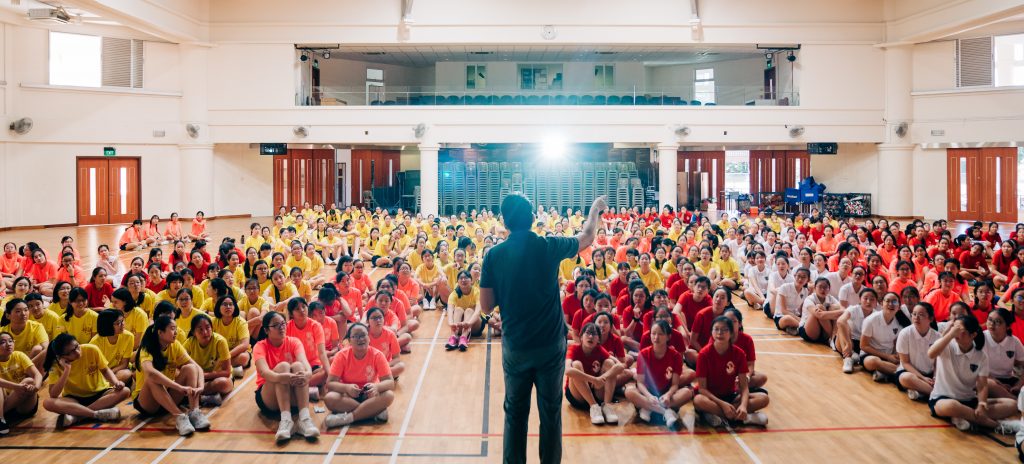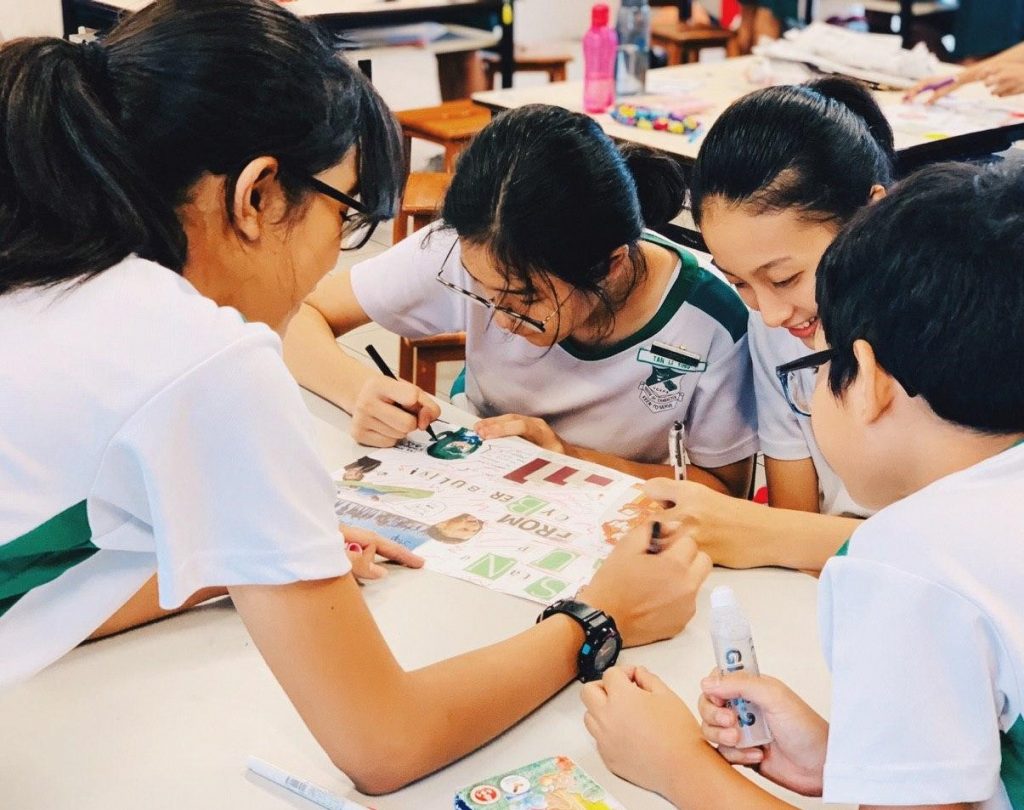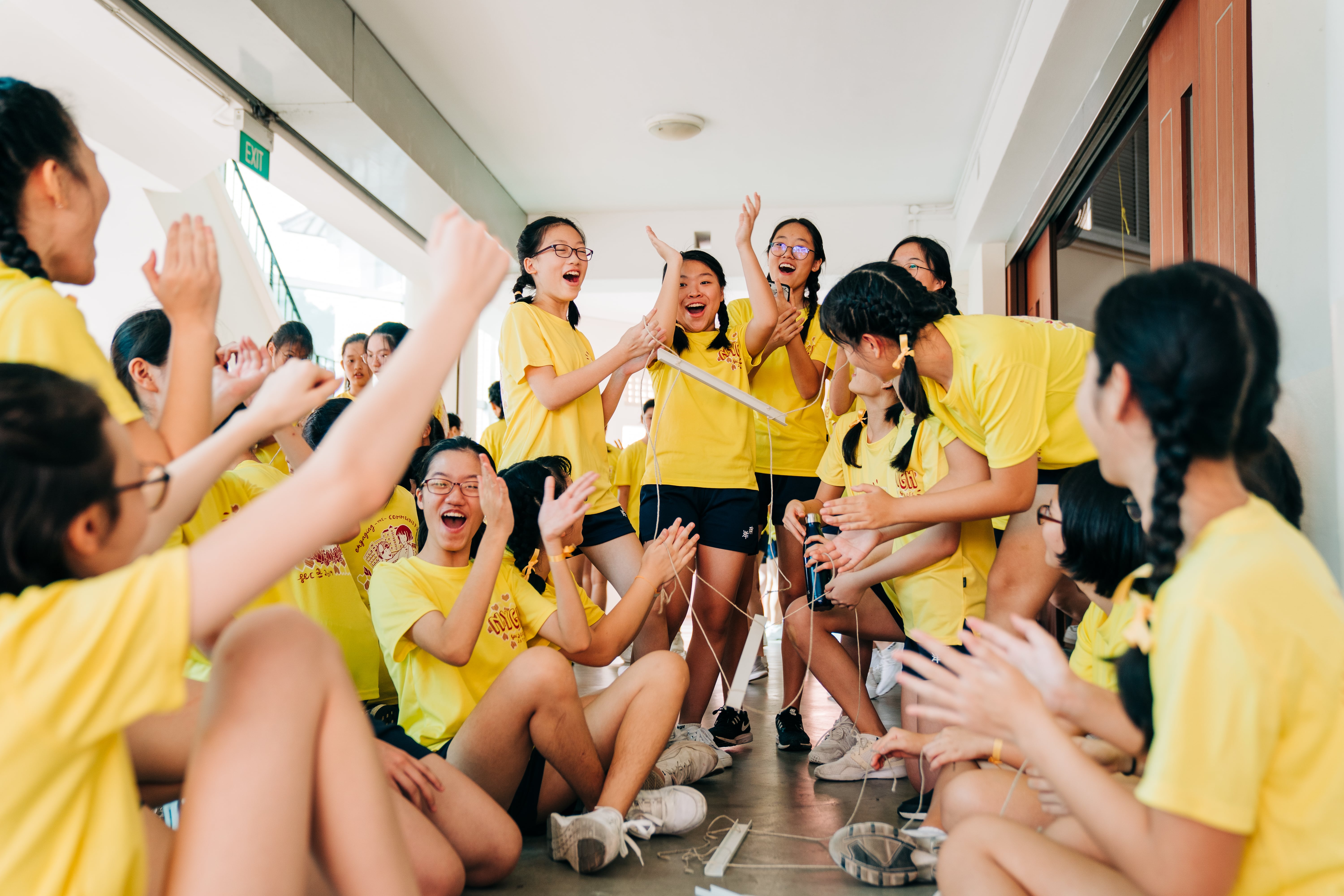The majority of the student leaders in schools are selected for their natural charisma in peer & team management and often shines naturally when tasked to perform daily tasks. Yet they may still have countless questions on how to develop competencies in their committee.
There are many different leadership skills required in a team, but here are 4 core competencies student leaders need in any and every setting - (1) facilitate team meetings, (2) present themselves and their ideas publicly, (3) empathise and design programmes for the student body and even (4) manage peer relationships & conflicts within the team.
#1: Facilitation

A successful discussion or team conversation should have a purpose, structure, direction and lead towards consensus or solutions. Facilitating a team discussion may sound easy, but it isn't. A skilled facilitator should have good rapport with his/her group mates, and be able relay their perspectives and messages clearly for effective group discussion to take place. A good facilitator can accelerate a team’s performance to achieve not only an effective discussion, but also a productive one.
We broke down the key success traits of an effective facilitation session into 4 important stages, to help workshop participants gain first-hand experiences and practice conducting team facilitation in various contexts. The 4 stages are:
- Building rapport
- Generating awareness
- Designing action
- Creating drive
At the end of the workshop, participants would have learned how to establish a safe environment for open sharing, gained clearer communication skills, practiced active listening and learned to ask relevant and appropriate questions, to guide a team to their desired destination.
#2: Public Speaking

One of the most challenging qualities that leaders face is the ability to speak well in front of others. A leader with effective public speaking skills assures a crowd with confidence and strong conviction when relaying their points of view. On the other hand, a lackluster presenter could make a solid proposal less than enticing and oftentimes put a great idea to waste. Clear structuring, the use of expressive tones and effective choice of words are therefore essential skills.
This programme helps participants learn useful techniques such as:
- Avoiding nervousness and fear of public speaking
- Developing clear organization of presentation materials
- Fine-tuning verbal & non-verbal skills
At the end of the workshop, participants would have gained lifelong skills to win over a crowd, motivate change and inspire others to act!
#3: Design Thinking
Design thinking is essentially a creative problem solving process which centers around human needs. With this user-centric approach, leaders seek to understand and restore a specific need for a particular audience. This not only creates a structure for effective solutioning, it also helps develop empathy and perspective taking, to allow real change to happen.
In short, the 5 stages of design thinking are:
- Empathize - Find out your users’ needs
- Define - State your users’ problems
- Ideate - Generate ideas & possibilities
- Prototype - Create solutions
- Test - Experiment & refine

This is a highly practical & experiential programme where participants ideate and produce a solution targeted towards a specific context, especially for Values-In-Action (VIA) projects. Participants then share, refine, and finalize their ideas with the rest of the groupmates.
#4: Conflict Management
The importance of conflict resolution in an organization is paramount. When conflicts are managed well, a team not only functions effectively and productively, team morale and motivation remains high and the overall environment becomes positive and conducive.
Generally, the benefits of conflict resolutions include:
- Strong & healthy relationships
- Achievement of shared goals
- Better problem-solving
- High levels of commitment & engagement

In this programme, participants first discover their usual conflict management styles before learning how to use appropriate stances in specific contexts. Group activities are also incorporated to simulate real-life scenarios where conflicts may arise. This helps participants better understand differing needs & opinions of their groupmates, and develop effective listening and communication skills to mediate tension and prevent escalation of conflicts.
To find out more about these student leadership programmes or if you wish to get a copy of our programme brochure, drop us an enquiry today!
Contact

